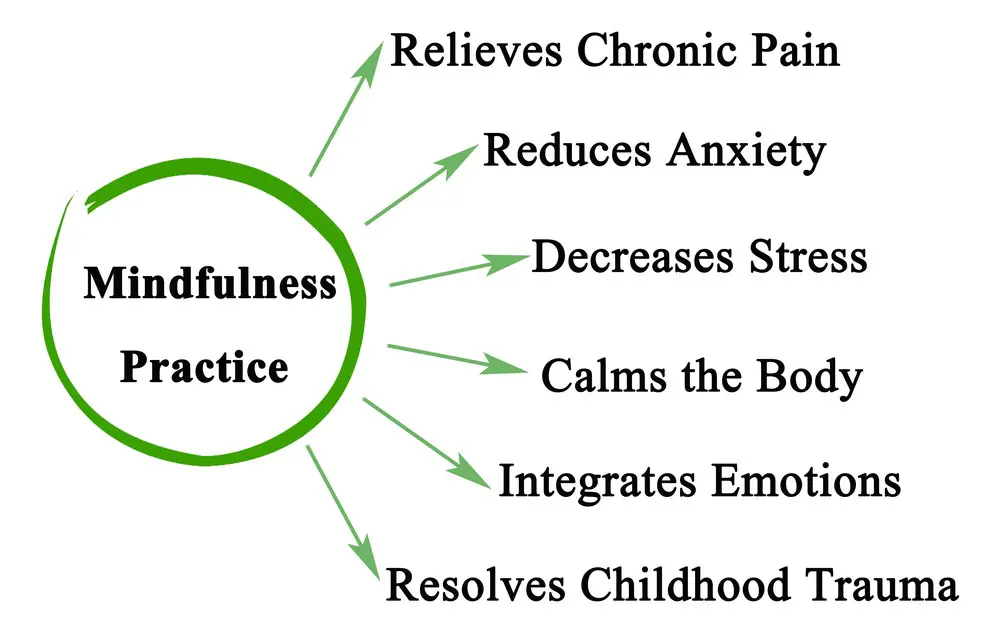As a BetterHelp affiliate, we receive compensation from BetterHelp if you purchase products or services through the links provided
Navigating through difficult situations can be daunting, but having good self-esteem is a powerful tool to help you face these challenges head-on. Self-esteem is the internal belief and perception of one’s worth, and it plays a vital role in coping with life’s challenges and adversities. By understanding the importance of maintaining good self-esteem, you can empower yourself to endure difficulties and create a solid foundation for mental well-being.
Good self-esteem allows you to approach problems with a positive mindset, making it easier to identify and implement practical solutions when faced with challenges. High self-esteem encourages resilience, a crucial trait needed when navigating hardships while fostering a healthier mental state during these trying times. Furthermore, it enhances your ability to build and maintain strong support networks essential for overcoming obstacles and alleviating stress.
Key Takeaways
- Good self-esteem strengthens resilience and promotes a positive mindset amid challenges.
- High self-esteem fosters a strong support system and healthy coping strategies.
- Nurturing and maintaining self-esteem is invaluable for mental well-being as you tackle life’s obstacles.
 Understanding Self-Esteem
Understanding Self-Esteem
Good self-esteem is crucial in helping you face and overcome difficult situations. Self-esteem, in simple terms, is your opinion about yourself, which includes your self-worth, confidence, and ability to face challenges with a positive attitude.
A healthy self-esteem helps you believe in your worth and capabilities. When you value yourself, you’re more likely to defend your interests and establish boundaries, developing your resilience to face difficult situations.
Boosting Confidence: A confident person with high self-esteem will approach challenging scenarios with determination. Trusting your abilities makes it easier to remain composed and find effective solutions. In contrast, low self-esteem may cause hesitation or self-doubt, ultimately hindering your decision-making process.
- Make a note of your achievements and strengths.
- Surround yourself with supportive people.
- Avoid negative self-talk and practice self-compassion.
Working on your self-esteem should become a habit, like exercising or maintaining a healthy diet. Here are some ways to improve your self-worth and confidence:
- Acknowledge your accomplishments and celebrate your successes.
- Set realistic goals and avoid overwhelming yourself with impossible targets.
- Engage in activities that you enjoy and that make you feel capable.
- Practice self-compassion and remind yourself that everyone makes mistakes.
Remember, developing healthy self-esteem takes time and effort. Be patient with yourself, and whenever you face a difficult situation, remember to draw from your confidence and inner strength to overcome it.

Effects of Self-Esteem on Mental Health
Positive Effects
Having good self-esteem can greatly impact your mental health. When you maintain a positive outlook, it can help in reducing anxiety and depression. Here are some of the advantages of having good self-esteem:
- Positive thinking: You tend to focus more on the bright side of situations, which helps you become more resilient and better equipped to handle challenging scenarios.
- Healthy coping mechanisms: You are more likely to adopt beneficial strategies, such as seeking mental health counseling or psychotherapy when needed.
- Fewer negative thoughts: High self-esteem enables you to minimize negative self-talk, mental filtering, and jumping to negative conclusions.
Cultivating good self-esteem helps you break away from automatic negative thoughts and beliefs that can weigh you down.
Negative Effects
On the other hand, low self-esteem can damage your mental health. Here are some negative consequences of low self-esteem:
- Anxiety and depression: Persistent negative thinking can trigger or intensify symptoms of anxiety and depression.
- Distorted perception: You’re more likely to convert positive events into negatives, reinforcing the negative self-talk cycle.
- Mistaking feelings for facts: Low self-esteem often leads you to confuse emotions with reality, leading to a skewed perception of situations.
Developing healthy self-esteem enables you to approach challenges positively, benefiting your mental health.
Self-Esteem and Coping Strategies
Self-Talk
Monitoring your self-talk is important when facing challenges, as it significantly affects your self-esteem. By reducing negative self-talk and practicing positive self-talk, you’ll reinforce your belief in your strengths, making it easier to tackle difficult situations.
- Negative self-talk: These thoughts focus on your weaknesses and obstacles. They can make you feel defeated before even trying.
- Positive self-talk: This type of self-talk emphasizes your skills and the potential solutions to your problems. It encourages proactive behavior and boosts your self-esteem.
Key takeaway: Remember to be kind to yourself with your inner dialogue, as it shapes your approach to challenges.
 Mindfulness and Meditation
Mindfulness and Meditation
Mindfulness and meditation are excellent techniques for helping you cope with stress and maintain your self-esteem in trying times. By focusing on the present moment, you’ll develop a rational and logical perspective towards your challenges instead of being overwhelmed by your emotions.
- Meditation: Regular practice can strengthen your awareness and control over your thoughts.
- Mindfulness enables you to observe your thoughts and emotions without judgment, promoting a greater understanding of your strengths and weaknesses.
Key takeaway: Incorporate meditation and mindfulness into your routine for better self-awareness and emotional resilience.
Physical Exercise
Engaging in regular physical activity has countless benefits for your physical health as well as your self-esteem. Exercise helps you develop a sense of accomplishment, reinforcing your belief in your capabilities to handle demanding situations.
- Endorphins: Physical exercise releases these feel-good chemicals in your brain, which can improve your mood and overall sense of well-being.
- Goal setting: Accomplishing exercise-related goals, such as finishing a workout or beating a personal best, fosters self-efficacy and boosts your self-esteem.
Key takeaway: Prioritize physical activity in your daily life to boost your mood, increase your self-esteem, and foster a healthy coping mechanism for challenges.
The Role of Support Networks
A strong support network can help you navigate life’s challenges with better self-esteem. Surrounding yourself with positive relationships, like friends, family, or even a therapist, can provide the emotional and mental stability you need during tough times.
You might wonder why having such a network in your life is essential. Well, let’s explore some of the key benefits:
- Reinforcing positivity: When you have people who encourage and believe in you, it’s much easier to stay positive. Their affirmations and validations can help boost your self-worth, making it easier to face difficult situations.
- Therapeutic assistance: Talking therapies or professional support from a therapist can offer guidance for managing stress and understanding your emotions better. This can improve self-esteem and help you tackle challenges with greater confidence.
- Sharing experiences: Your support network can also serve as an avenue to share your thoughts and feelings. Speaking about your problems can alleviate stress; sometimes, your peers may provide valuable insights based on their experiences.
To create a solid support network, consider these tips:
- Reach out to friends and family who make you feel good about yourself.
- Attend workshops or support groups to meet new people and share experiences.
- Consult a licensed therapist, if needed, to help enhance your emotional well-being.
In summary, having a reliable support network can positively impact your self-esteem and make it easier to manage and overcome difficult situations. By surrounding yourself with the right people and seeking proper guidance, you’ll better your chances of bouncing back from life’s challenges with confidence.
The Influence of the Environment
Your environment plays a significant role in shaping your self-esteem, especially when dealing with difficult situations. Surrounding yourself with positive influences can empower you to handle challenges and boost your confidence effectively.
Having a supportive circle of friends and family is essential. They can provide encouragement and advice in tough times. By fostering relationships with people who value your strengths and help you overcome your weaknesses, you create a nurturing atmosphere where your self-esteem can flourish.
It’s crucial to keep an eye out for discrimination in any environment. Unequal treatment can harm your self-esteem and create a sense of unworthiness. Always remember that you deserve as much respect and opportunity as anyone else. If you experience discrimination, consider seeking support from trusted friends or professional help to reinforce your self-worth.
When you immerse yourself in a positive environment, you’re more likely to:
- Embrace openness
- Encourage and accept constructive feedback
- Foster teamwork and collaboration
- Recognize and celebrate successes
- Remove barriers and cultivate inclusivity
Remember, positive change starts with you. Advocate for creating environments that promote fairness, respect, and equal opportunities, thus benefiting your self-esteem and those around you.

Building and Maintaining Good Self-Esteem
Building and maintaining good self-esteem helps you navigate difficult situations with ease. You can start by practicing self-compassion and treating yourself with kindness. When you stumble, remember that everyone makes mistakes – it’s part of growth.
Acknowledge and celebrate your achievements, no matter how small they may seem. Praise yourself for accomplishing goals and overcoming obstacles. Along the way, seek out positive influences – friends, mentors, or even books and podcasts that inspire you.
It’s important to surround yourself with people who uplift and motivate you. Consider volunteering or joining clubs with like-minded individuals. This will allow you to connect with others, learn from their experiences, and strengthen your sense of purpose.
Incorporate daily affirmations into your routine. Please list positive statements that resonate with you and repeat them to yourself regularly. This can help to reframe negative thinking patterns and build self-confidence. For example:
- I am worthy of love and respect.
- I embrace challenges and learn from them.
- My abilities and achievements are unique to me.
Develop resilience by embracing the reality of your circumstances while remaining flexible and adaptable. Understand that setbacks are temporary and that you have the power to bounce back.
Self-acceptance is key to maintaining good self-esteem. Embrace your strengths and acknowledge your weaknesses. Remember that nobody is perfect, and we all have areas where we can improve.
Finally, don’t forget your well-being. Nurturing your physical, emotional, and mental health contributes to a stronger sense of self-worth. Pursue activities that bring you joy and satisfaction. This might include exercise, spending time with loved ones, or engaging in hobbies you’re passionate about.
Key takeaway: Building and maintaining good self-esteem involves practicing self-compassion, acknowledging achievements, seeking positive influences, using affirmations, being resilient, embracing self-acceptance, and nurturing your well-being.
Frequently Asked Questions

How does self-esteem influence decision-making?
Good self-esteem plays a crucial role in your decision-making process. You’ll likely make informed and rational choices when you trust and value yourself. Outside pressures do not sway you; you take responsibility for your actions. Low self-esteem often leads to poor decisions based on fear or insecurity. So, developing confidence in yourself is key to making better life choices.
Key takeaway: Trusting in decision-making leads to more informed and rational choices.
What is the role of self-esteem in coping with challenges?
When facing challenges, your level of self-esteem can determine how well you bounce back. High self-esteem makes you more likely to acknowledge your worth, learn from difficulties, and keep pushing forward. On the other hand, low self-esteem can make it harder to cope and may even result in self-blame. By building your self-esteem, you can develop the resilience needed to overcome obstacles.
Key takeaway: A strong self-esteem equips you with the resilience to face challenges and grow through adversity.
How can building self-esteem improve resilience?
Building self-esteem goes hand-in-hand with improving your resilience. Here are some tips for boosting your self-esteem:
- Recognize your strengths and accomplishments
- Practice self-compassion
- Seek positive support and uplift the company
- Set realistic goals and continuously strive for improvement
By following these steps, you’ll not only enhance your self-esteem, but you’ll also develop the mental toughness essential for facing future challenges.
Key takeaway: Building self-esteem can directly impact your resilience, enabling you to handle life’s challenges better.
In what ways does self-esteem affect interpersonal relationships?
Confidence in oneself can lead to more fulfilling relationships. High self-esteem makes you less likely to settle for unhealthy relationships and better equipped to set boundaries. People with low self-esteem often struggle in interpersonal relationships, as fear and insecurity can lead to clinginess, mistrust, or even self-sabotaging behaviors.
Key takeaway: Healthy self-esteem leads to better interpersonal relationships by fostering trust, balance, and mutual respect.
What strategies can help boost self-esteem?
Boosting self-esteem is a gradual process but achievable with consistent effort. Some strategies to improve self-esteem include:
- Focus on positive self-talk and affirmations
- Cultivate self-awareness and self-acceptance
- Set and achieve realistic goals
- Surround yourself with a positive support system
- Practice self-compassion and self-care
- Celebrate your accomplishments and strengths
By implementing these strategies, you can nurture your self-esteem and open yourself up to personal growth.
Key takeaway: Consistent effort and a variety of strategies can contribute to increasing your self-esteem over time.
How does self-esteem contribute to personal growth?
When your self-esteem is strong, you’re more likely to embrace challenges, stay open to learning, and take calculated risks—all crucial elements of personal development. High self-esteem also makes it easier to accept constructive criticism, learn from mistakes, and grow. Emphasizing self-improvement and maintaining a growth mindset go a long way in contributing to your overall sense of self-worth.
Key takeaway: Good self-esteem enables personal growth by fostering openness to learning, risk-taking, and a positive outlook on life.
About Jacob Maslow
After surviving the traumatizing events of 9/11, I took it upon myself to heal through helping others. I’m the primary caregiver of my children and understand from first-hand experience the lonely paths you have to walk as a partner and parent when leaving an unhealthy relationship.
We’re all echoing in a dark space that doesn’t have to be this empty, and that’s been my mission since finding solace and recovery in therapy: To help comfort others who are still in shock and at the prime of their struggle.
I came across BetterHelp after searching for this type of community. I wanted to belong to a body of proactive therapists and supportive therapy veterans that allowed me to see other sides of the story.
It was unconventional, and that’s what attracted me most. During my most challenging times, when my ex-wife completely cut me off from my children, I found comfort and clarity through BetterHelp.
Instead of being chained to a strict therapist recommendation, I was in charge of who I felt understood my struggle most. That allowed me to find my true peace, as I was reunited with those who read behind my words and had first-hand experience with my trauma.
Recovery is a choice; with BetterHelp, that choice will be a few clicks away. You can join their couples-oriented platform, Regain.us, for those stuck with family estrangement and toxic relationship patterns.
- Author <li class="abh_posts">Recent Posts
- 7 Ideas to Help You Relax and Unwind on a Family Vacation - April 27, 2025
- How Having Cybersecurity Protection Helps You Relax - April 25, 2025
- 8 Reasons Why Spending Time Outside Calms You Down - April 25, 2025
This site contains affiliate links to products. We will receive a commission for purchases made through these links.


 Understanding Self-Esteem
Understanding Self-Esteem Mindfulness and Meditation
Mindfulness and Meditation
